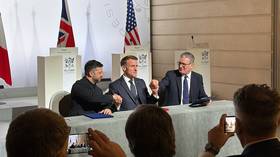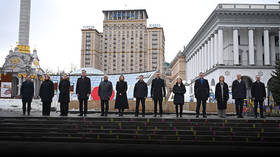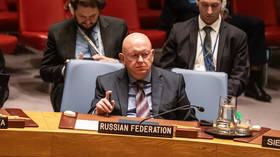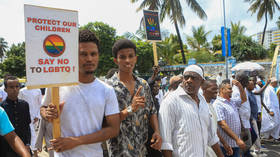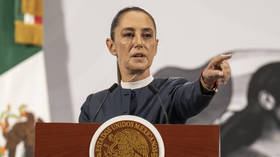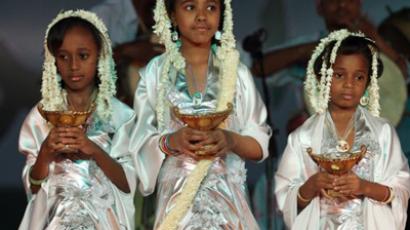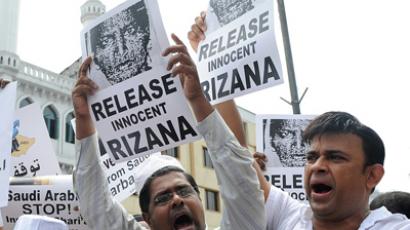Ax may fall on Saudi beheadings
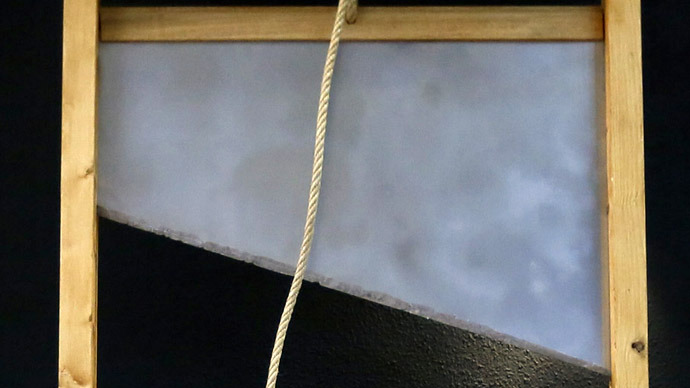
Saudi Arabia may do away with the centuries-old practice of public beheadings due to a dearth of sword-wielding executioners necessary to carry out the task, local newspapers report.
A special inter-ministerial committee has recommended that
executions be carried out by firing squad in the oil-rich Gulf
kingdom, saying the new method would not violate Islamic law.
"This solution seems practical, especially in light of shortages
in official swordsmen or their belated arrival to execution yards
in some incidents; the aim is to avoid interruption of the
regularly-taken security arrangements," Egypt’s Ahram daily
cites the committee as saying in a statement on Sunday.
Reformists within the kingdom have also called for lethal
injections carried out in prisons to replace public
decapitation.
Saudi Arabia is the only country in the world where the death
penalty is implemented by beheading in a public square. In rare
cases, decapitated corpses are placed on a crucifix to serve as an
additional deterrent to would-be criminals.
Rape, murder, armed robbery, drug trafficking, sodomy, practicing
witchcraft and renunciation of one’s faith are all capital offenses
in the ultra-conservative state, which has a legal system based on
Islamic or Sharia law rather than legal codes and precedents.
On Monday, a Saudi national was beheaded after being convicted of
stabbing a countryman to death. His execution brought the total
number of beheadings in Saudi Arabia to 18 so far this year, AFP
reports.
In 2012, 76 people were executed in the kingdom according to an AFP
tally, while Human Rights Watch put that figure at 69.
The practice has always been a source of contention between Saudi
Arabia and the international community.
In January, Saudi Arabia drew widespread condemnation for the
beheading of a Sri Lankan maid convicted of the 2005 killing of her
employer's baby.
Both the UN and EU voiced “deep dismay” over the execution
of Rizana Nafeek, who was reportedly just 17 years old at the time
of her arrest.
In February, Saudi Arabia lambasted international reaction to
Nafeek’s death.
“[Riyadh] deplores the statements made... about the execution of a
Sri Lankan maid who had plotted and killed an infant by suffocating
him to death one week after she arrived in the kingdom," a
government spokesman said.
The spokesman further said the kingdom “completely rejects any
intervention in its affairs and judicial verdicts, whatever the
excuse.”




